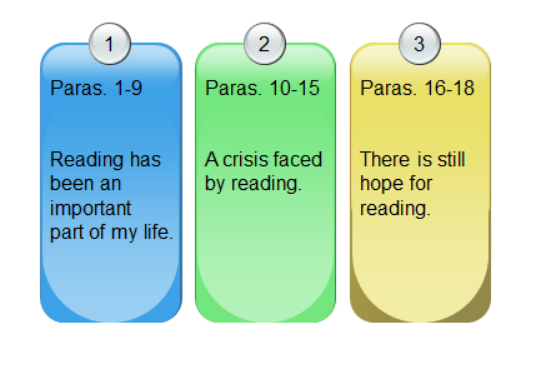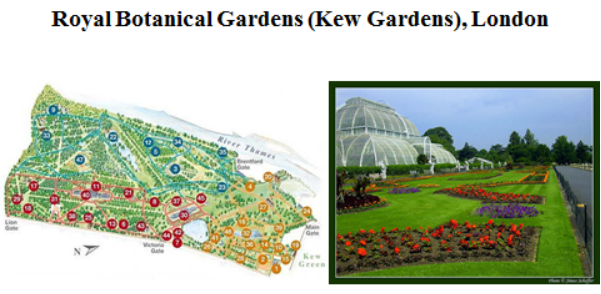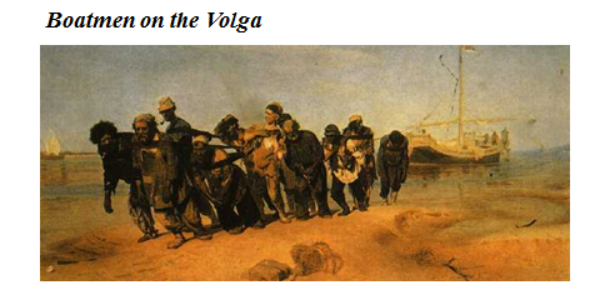Text Analysis: A Dill Pickle
Have you ever read some wonderful love stories?
教师解析
Most of us have a lot of stories to share with each other.
Today let’s talk about a love story by Katherine Mansfield.
Text Analysis:A Dill Pickle
I. Warming up
1. Fill in the blanks.
(1)He closed his eyes an instant, but opening them his face ___ up as though he had ______ a match in a dark room.
(2)He ______down the orange and ______ on the table for the waitress.
(3)His thoughts ________over the last meeting between them. And his memory ________ as he listened to the familiar song.
2. Love counseling
Imagine that you are a relationship counselor and give advice to the two lovers on what goes wrong in their relationship and how they can make up, if possible.
II. Background
Author: Katherine Mansfield (1888-1923)
Her Life
•rebellious, dangerously witty, and lonely
•creative years burdened with loneliness, illness, jealousy and alienation: bitter depiction of marital and family relationships
•died of TB—the “romantic disease”
Her Influence
In a German Pension (1911)
The Garden Party: and Other Stories (1922)
The Doves’ Nest: and Other Stories (1923)
Bliss: and Other Stories (1923)
Stream of consciousness
Characters’ psychological activities with detailed descriptions and symbolism
History
1. Women’s condition at the time:
Women were advocated to cultivate such qualities as “tenderness of understanding, unworldliness and innocence, domestic affection, and above all, submissiveness in various degrees.”
2. “The Woman Question”:
rising wave of feminist movement (late Victorian age to the early 20th century)
III. Text analysis
1.Theme
Questions for thinking:
1)Do you think the character of the two lovers plays an important role in their relationship?
2)What do you think results in the failure of their love and communication?
3)How would you describe the two characters’ relationship as presented in the story? Do you think this is a typical love story? If not, why does the writer choose to tell it this way? Or what is her real purpose in writing such a story?
(1)Man-Woman relationship:
Sexual politics (ideas and activities that are concerned with how power is shared between men and women, and how this affects their relationships)
1)The man talks while the woman listens.
2)The man controls the conversation, demanding attention.
3)The man is tantalizing, offering hopes that he withdraws at wish.
4)The woman’s reaction: contradiction compromise rebellion
5)The woman’s desire to be heard and understood
(2)Feminist concern: What does a woman want?
It was her “born duty to reckon everything subordinate to his comfort and pleasure, and to let him neither see nor feel anything coming from her, except what is agreeable to him.”
—J. S. Mill, The Subjection of Women
2.Style
(1) Characteristics of modernist writing:
•symbolic images
•fragmented plot
•trivial subjects
•psychological insight—internal monologues, “stream of consciousness”
(2) Many of the images in the story are deliberately symbolic. For example, the flowers. Can you find out the implication of the flowers? Do they take on a second meaning in the story?
(3) Why is the story titled “A Dill Pickle”? How is it relevant to a love story? What might it represent symbolically, if it does?
3. Character Analysis
(1) Vera
Questions for thinking:
1)How did Vera feel when she saw her former lover? Was she still attached to him?
2)Why did Vera break up with the man six years earlier?
3)Do you think Vera left the man again for the same reasons as the first time?
4)What indeed did Vera want? Why had she been so lonely? Was it because, as the man said, she was an egoist?
5)What does the “strange beast” stand for? Why does the author describe it as a “strange beast”? Is this image conventionally associated with women?
6)How do you understand that Vera was “born out of her time”?
(2) The man
Questions for thinking:
1)What is the man’s name? Why isn’t he given a name?
2)Was the man still in love with Vera? If not, why did he seem so happy talking to her and ask her to stay?
3)Why did he “let it go at that” when Vera told him she had sold her piano?
4)In what tone did he mention the break-up letter? Do you think he really understood now what Vera had written about him?
5)Do you agree with what the man said about Vera? Did he understand her to some extent?
4. Structure
(1) Questions for thinking:
1)How does the story begin and end? How is it different from a traditional story?
2)Why isn’t the story told in the original time order? What kind of effect does it create on the reader’s mind?
3)We know little of what really happened between the characters. Instead we are provided with only scattered memories and feelings. Why does the writer withhold the information? Do you find it more intriguing to work out the puzzle than to have a direct and full picture?
(2)The structure of the passage

5. Detailed Analysis
Part I: Discssion
1)How differently did Vera and the man react to their chance reencounter? Why?
2)Do you think the man meant it when he said that Vera looked “so well”? Why did he say so?
3)What details in this part have you noticed that might help us understand better the characters and the problem in their relationship?
Part I: Discssion
1)Episode 1 (13-15): first date
a)How did Vera’s memory differ from the man’s recollection of their first date?
b)Why did she later admit that “His was the truer.”?
2)Episode 2 (16-21): on a lawn
a)Why did Vera at the moment think of this particular incident in their love affair?
b)What might it tell of her feelings for the man?
c)How did the man’s words at that time contrast with his at the present? Do you find this contrast ironic? Why?

3)Episode 3 (22-43): the Russian trip
a)In what way had the man changed in the six years? And the woman? What influence would it have on their relationship?
b)Why did the man “let it go” when he knew that the woman had sold her piano? Was it strange for him to do so?
c)How did the man describe his experience of the river life? What picture did it provoke in Vera’s mind?


4)Episode 4 (44-51): the night of the Christmas tree
1. What bias do people have against those who read much?
a)What did the man suggest when he praised the woman as a “marvelous listener”? Why did Vera find “a hint of mockery” in his voice?
b)What did it show that the man did not remember his dog’s name whereas Vera did?
c)What did it imply when the man “snapped the cigarette case to”?
Part III: Discssion
1)Why did Vera want to leave when the man mentioned their breakup six years ago? Why did she then change her mind and stayed?
2)Do you think Vera and the man were lonely for the same reasons? Was she an egoist as he was?
3)Why did she leave again, and so abruptly?
IV. Reinforcement: Discussion
The orthodox “history” of reading
We find Vera’s impression or memory very different from the man’s. Why does the author present us with these contradictory stories?
(2)Whose version is probably more reliable?
(3)For most of the time, it was the man that spoke while Vera remained silent in her thought. Why is it so? Did she not want to speak? Or was it for any other reason?
(4)What did the man want from Vera by asking her to stay? What did Vera want from him?
(5)We find Vera’s impression or memory very different from the man’s. Why does the author present us with these contradictory stories?
(6)Whose version is probably more reliable?
(7)For most of the time, it was the man that spoke while Vera remained silent in her thought. Why is it so? Did she not want to speak? Or was it for any other reason?
(8)What did the man want from Vera by asking her to stay? What did Vera want from him?
